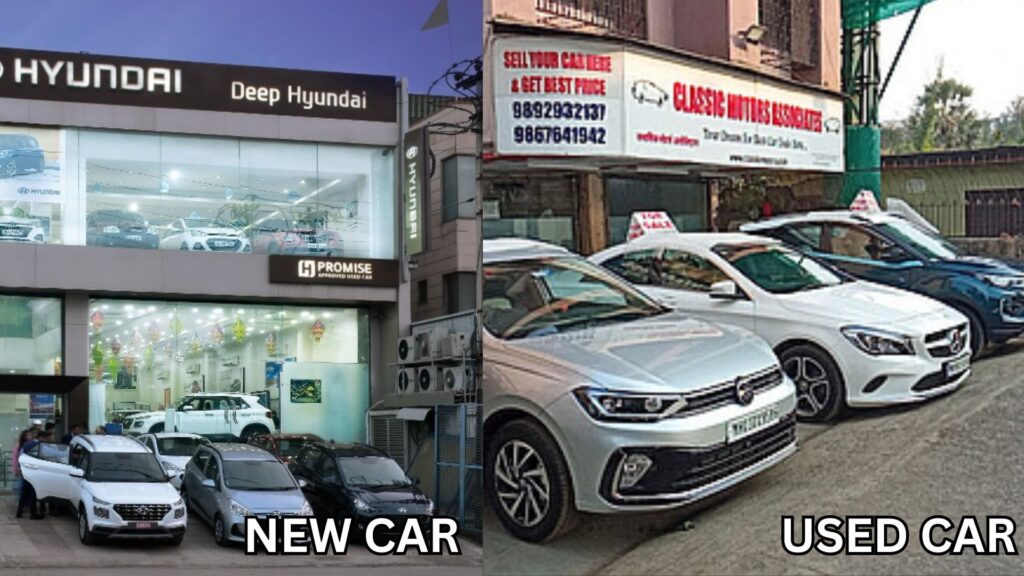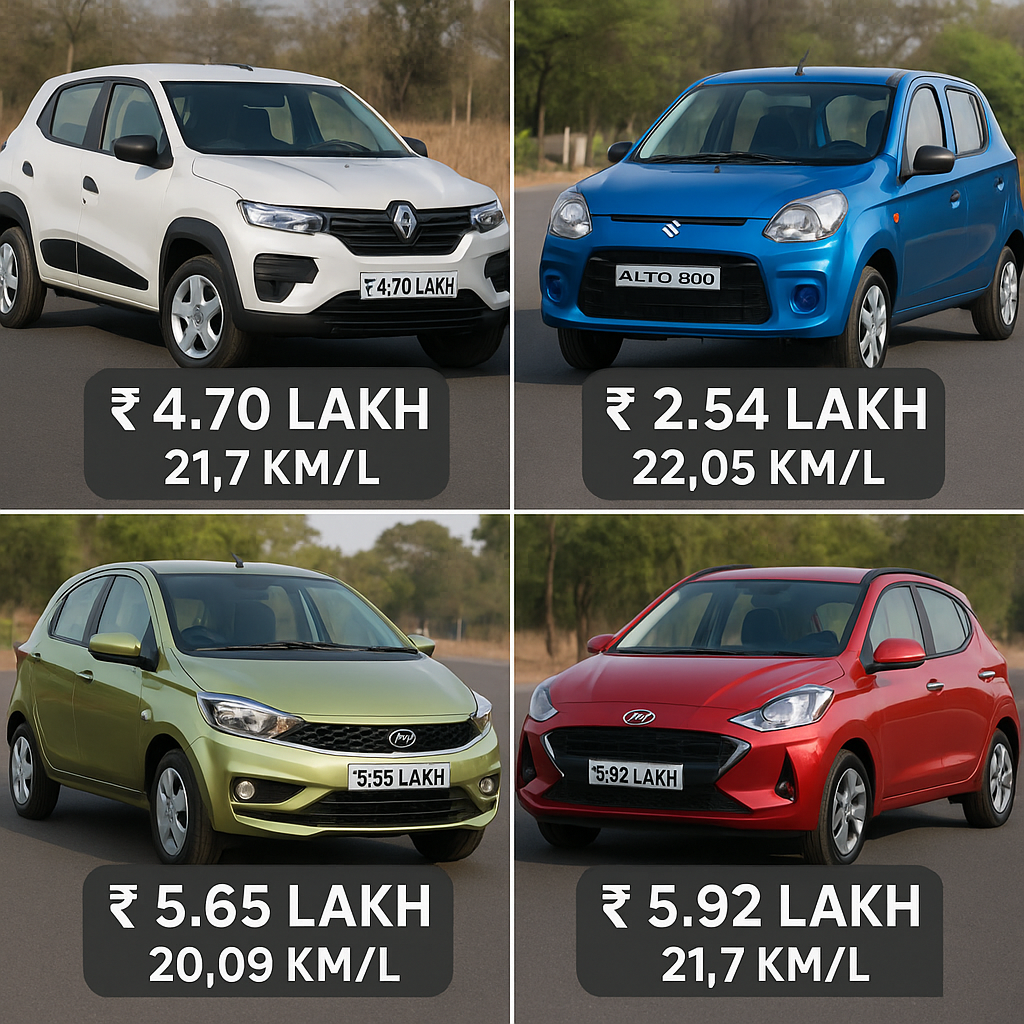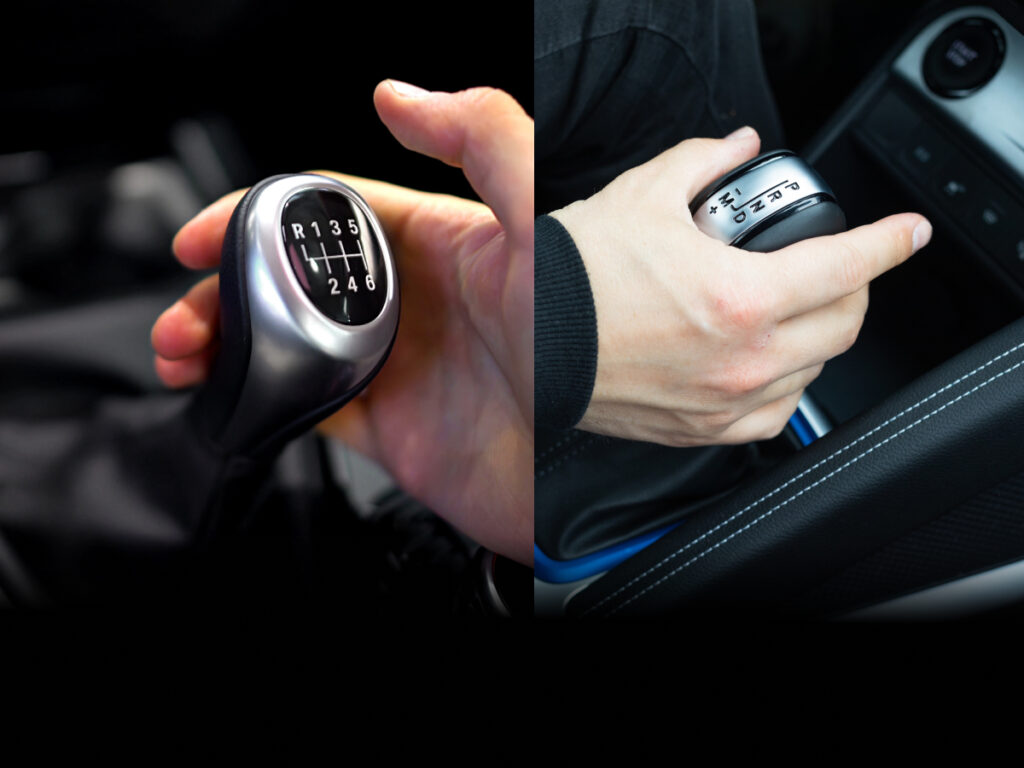When deciding between buying a used or new car in India in 2025, here’s what makes sense—considering cost, ownership experience, and current market conditions:
Buying a New Car: Pros & Cons
Advantages:
- Customization: Choose exact specifications, color, trim, and features—including the latest safety, tech, and emission-compliant options.
- Reliability & Warranty: Zero previous wear; full manufacturer warranty (typically 2–5 years) ensures peace of mind.
- Lower maintenance (initial years): Fewer surprises; mostly limited to scheduled servicing for first few years.
- Latest tech & safety: Modern cars have advanced features (ADAS, connected tech, more airbags, etc.), better emissions, and often superior fuel efficiency.
- Attractive financing & offers: Manufacturers/dealers often provide discounts or lower interest rates on loans.
Disadvantages:
- High upfront cost: New cars are significantly more expensive—not just in price, but also taxes and insurance
- Higher depreciation: New cars lose 20–30% of their value in the first year—highest depreciation in early years
- Higher registration & insurance: First-year premiums and govt. taxes add to initial ownership costs.
- Longer wait times: Popular models may see months-long waiting periods due to ongoing supply chain issues
Buying a Used Car: Pros & Cons
Advantages:
- Lower purchase price: You save 30–50% versus new. Most depreciation has already occurred, so resale loss is less steep
- Lower insurance & taxes: Cheaper insurance and lower registration expenses help reduce running costs
- Wider choice at a budget: For the same amount as a new entry-level car, you can get a well-equipped, higher-segment used vehicle.
- Digital, organized marketplaces: Platforms like Cars24, Spinny, True Value, and Mahindra First Choice now offer certified pre-owned cars with inspection reports, warranties, and verified service history—reducing risk
- Easier upgrades: Lower upfront cost allows buyers to upgrade or change cars more frequently.
Disadvantages:
- No fresh warranty: Unless certified, cars may have limited or no manufacturer warranty; mechanical/historic issues may surface later
- Higher/unknown maintenance: Some used cars may need more frequent servicing or replacement of worn parts.
- Financing challenges: Loan interest rates may be slightly higher and loan tenures shorter; not all providers finance older vehicles.
- Past history risk: Quality depends on how the car was driven and maintained by the previous owner.
Market Trends in 2025
- Used car prices have increased due to supply chain issues limiting new car stock, making some recent, well-maintained used cars pricier than before
- Higher running costs and stricter emission norms have pushed up the price of new cars. This further fuels demand for used cars, especially in Tier 2 and 3 cities
- Certification and digitalization have made buying a used car more transparent and safer, while buyer stigma has largely vanished
- Financing and warranties for used cars are now more accessible thanks to growing organized players and online platforms
- Interest in EVs/hybrids: Used markets now occasionally offer electric/hybrid models, but demand keeps these prices elevated
What Makes Sense in 2025?
Opt for a Used Car if:
- You’re budget-conscious and want best value for money.
- Upfront cost, insurance, and taxes are major concerns.
- You want to upgrade categories (e.g., sedan/SUV) for the price of a new hatchback.
- You’re satisfied with a well-inspected, certified, recent model (2021+ with BS6 compliance is wise).
- You drive less and can handle minor repairs.
Opt for a New Car if:
- You want latest tech, features, and best safety/emission standards.
- You value full warranty, reliability, and zero history.
- You drive a lot and want low-maintenance for the first 3–5 years.
- You plan to keep the car long-term, so depreciation is less of a concern.
- You want the best finance offers or plan to go electric (as used EV options remain scarce/expensive).
Bottom Line
- 2025’s market swings slightly in favor of used cars for value-oriented buyers, given new car price hikes, higher taxes, and rising organized options in the second-hand space.
- If your priority is peace of mind, latest tech, or long-term ownership, a new car is still a strong choice despite higher cost and depreciation.
- Always get a pre-owned car inspected/certified and check its service history.
- Factor in your usage—daily commute, running costs, resale plans, and monthly EMI limits.
In both cases, digital tools and transparent platforms in 2025 make car buying in India safer and more convenient than ever.
Tip: If you’re a first-time buyer, start with used if value is crucial, but don’t ignore dealer and festive offers on new cars—they can tip the balance depending on your city, model, and personal finance situation.
Here are the essential legal points—including accident history, RC transfer, and insurance compliance—to check before buying a used car in India in 2025:
1. Zero Accident and Clean History
- Insist on full accident history: Ask the seller for a written declaration that the car has never been in a major accident or involved in criminal activity.
- Verify with service records and insurance: Check previous insurance claims—large repairs may indicate a significant accident. Always ask for the car’s service history, which ideally should be available online for cars serviced at authorized workshops.
- Get a pre-purchase inspection: Some platforms and garages offer detailed digital or physical check-ups to identify hidden damage that could result from past collisions.
2. Registration Certificate (RC) Transfer
- Check the RC carefully: The seller’s name on the original RC (Registration Certificate) must match their official ID. If the seller isn’t the first owner, verify the number of transfers.
- Loan clearance: If the vehicle was financed, ensure hypothecation (loan linkage) is removed from the RC. Ask for the bank’s No Objection Certificate (NOC) and Form 35 as proof.
- Essential forms for transfer: Collect Form 29 (Notice of transfer), Form 30 (Report of transfer), and if interstate, Form 28 (NOC from earlier RTO).
- Submit documents for RC transfer: After the sale, apply online (Parivahan portal) or offline at the RTO to officially transfer ownership into your name. This is mandatory—not transferring the RC makes insurance claims invalid and leaves you exposed to legal and financial risks.
- Check the number of previous owners: Ensure the number matches what the seller claims and what’s on the RC.
3. Insurance Compliance
- Valid Insurance a must: Every vehicle must have at least third-party insurance as per the Motor Vehicles Act, 1988. Ask for the original, valid insurance policy and check its expiry.
- Transfer the insurance: After RC transfer, the insurance must be endorsed in your (new owner’s) name within 14 days; otherwise, claims will be rejected.
- Check insurance claim history: Review for major claims—these may hint at prior accidents or major repairs.
- Renew or buy a new policy if expired: Comprehensive insurance is recommended for better protection, and add-ons like zero depreciation or engine cover can be purchased.
- No Claim Bonus (NCB): The NCB is linked to the previous owner and can’t be transferred; negotiate accordingly if there’s any impact on insurance premium.
4. Other Legal & Required Documents
- Pollution Under Control (PUC) Certificate: Ensure a valid and up-to-date PUC is provided.
- Road Tax & Receipt: Confirm that lifetime road tax was paid (check receipt) and that there are no dues.
- Service History: While not a legal requirement, an updated service history increases trust.
- Sale Agreement: Sign a sale agreement on stamp paper documenting the transaction and transferring liability.
- No Dues, NOCs: If the car is being sold interstate, obtain the NOC from the RTO.
Summary Checklist for Legal Compliance
- No accident history (get a written declaration, check repairs/claims)
- Match seller’s ID and name on RC
- Remove loan hypothecation (if any)
- Obtain and submit all RTO forms (29/30; 28 for outstation vehicles)
- Complete RC transfer process with the RTO or online portal
- Ensure insurance is valid and transferred to your name within 14 days of transfer
- Check PUC, road tax payment, and get all receipts/certificates
- Insist on a detailed service record
Following these steps is crucial to avoiding legal and financial issues, guaranteeing your peace of mind when buying a used car.
Disclaimer: Prices, specifications, mileage figures and feature lists cited in this article are based on publicly available information as of July 2025 and may change without notice. Always confirm the latest details with authorised dealers or the manufacturer before making a purchase decision. This content is for general informational purposes only and should not be taken as financial, technical or legal advice. Neither the author nor this website assumes any liability for actions taken based on the information provided.
Mileage Disclaimer: All mileage figures mentioned in this article, including ARAI-certified and real-world fuel efficiency numbers, are indicative and may vary significantly based on actual driving conditions, rider weight, vehicle maintenance, road conditions, traffic patterns, riding style, fuel quality, weather conditions, and individual vehicle variations. ARAI (Automotive Research Association of India) test figures are obtained under controlled laboratory conditions and may not reflect real-world performance. Actual mileage typically ranges 10-30% lower than ARAI figures depending on usage patterns. Urban city riding generally delivers lower mileage compared to highway cruising at optimal speeds. Regular maintenance, proper tire pressure, quality fuel, and smooth riding techniques can help achieve better fuel efficiency. The mileage figures quoted from user reviews and owner reports represent individual experiences and should not be considered as guaranteed performance standards. Always test ride with a helmet and evaluate real-world performance before making a purchase decision.
Also Read:
Car Launches in India – September 2025: A Month Full of Exciting Debuts?
References:
- https://www.shriramgi.com/article/new-car-vs-used-car
- https://www.cars24.com/article/new-cars-vs-used-cars-beginners-guide/
- https://parkplus.io/blog/cars/why-purchasing-a-used-car-is-better-than-a-new-car-in-india
- https://thexpressholidays.in/used-car-price-trend-india-2025/
- https://www.investopedia.com/articles/pf/07/neworusedcar.asp
- https://www.linkedin.com/pulse/india-used-car-market-share-growth-forecast-2032-ajay-patil-xlklf
- https://www.leadsquared.com/industries/automotive/used-car-market-trends/
- https://kogta.in/blog/new-vs-used-cars-get-a-used-car-loan-to-finance-your-purchase/
- https://www.cardekho.com/hi/advisory-stories/buying-and-selling/used-cars-to-buy-or-not-to-buy.htm
- https://www.cardekho.com/india-car-news/what-does-the-budget-2025-mean-for-the-indian-automotive-sector-33995.htm
- https://www.motozite.com/blog/second-hand-vs-new-luxury-car/
- https://www.iffcotokio.co.in/blog/car-insurance/the-indian-car-buyers-guide-2025-edition
- https://www.youtube.com/watch?v=g4fTu5kf3HQ
- https://timesofindia.indiatimes.com/business/india-business/union-budget-2025-green-signal-for-small-cars-bikes/articleshow/117842726.cms
- https://www.technavio.com/report/india-used-cars-market-analysis
- https://www.cardekho.com/upcomingcars
- https://www.popularnexa.com/new-car-vs-used-car-pros-and-cons/
- https://www.mordorintelligence.com/industry-reports/india-used-car-market
- https://caronphone.com/blog/best-cars-in-india-for-first-time-buyers-in-2025-for-beginners/
- https://www.aubank.in/blogs/study-forecasts-india-used-car-market-at
- https://stagesamil.cartradeexchange.com/Blog-used-car-buying-guide-verify-ownership-papers-condition-103
- https://www.axisbank.com/progress-with-us-articles/money-matters/borrow/things-to-check-before-buying-a-second-hand-car-or-used-car
- https://myraasta.in/blogs/rc-transfer-process-in-india-2025-step-by-step-guide-for-buyers-sellers
- https://bfsi.economictimes.indiatimes.com/news/insurance/going-for-a-used-car-insurance-heres-what-experts-suggest/118170551
- https://www.carwale.com/features/necessary-documents-to-have-when-buying-a-used-car-195215



